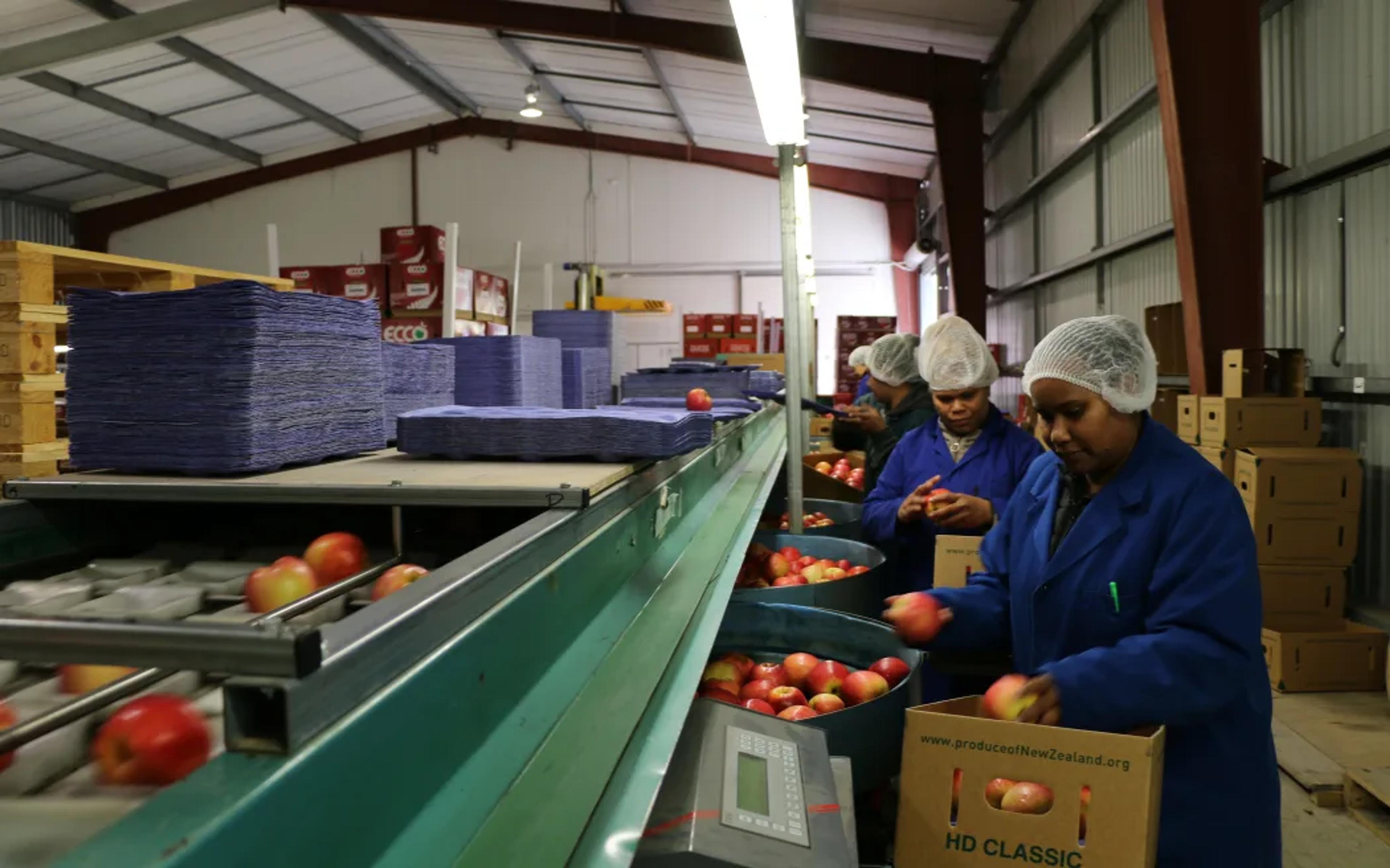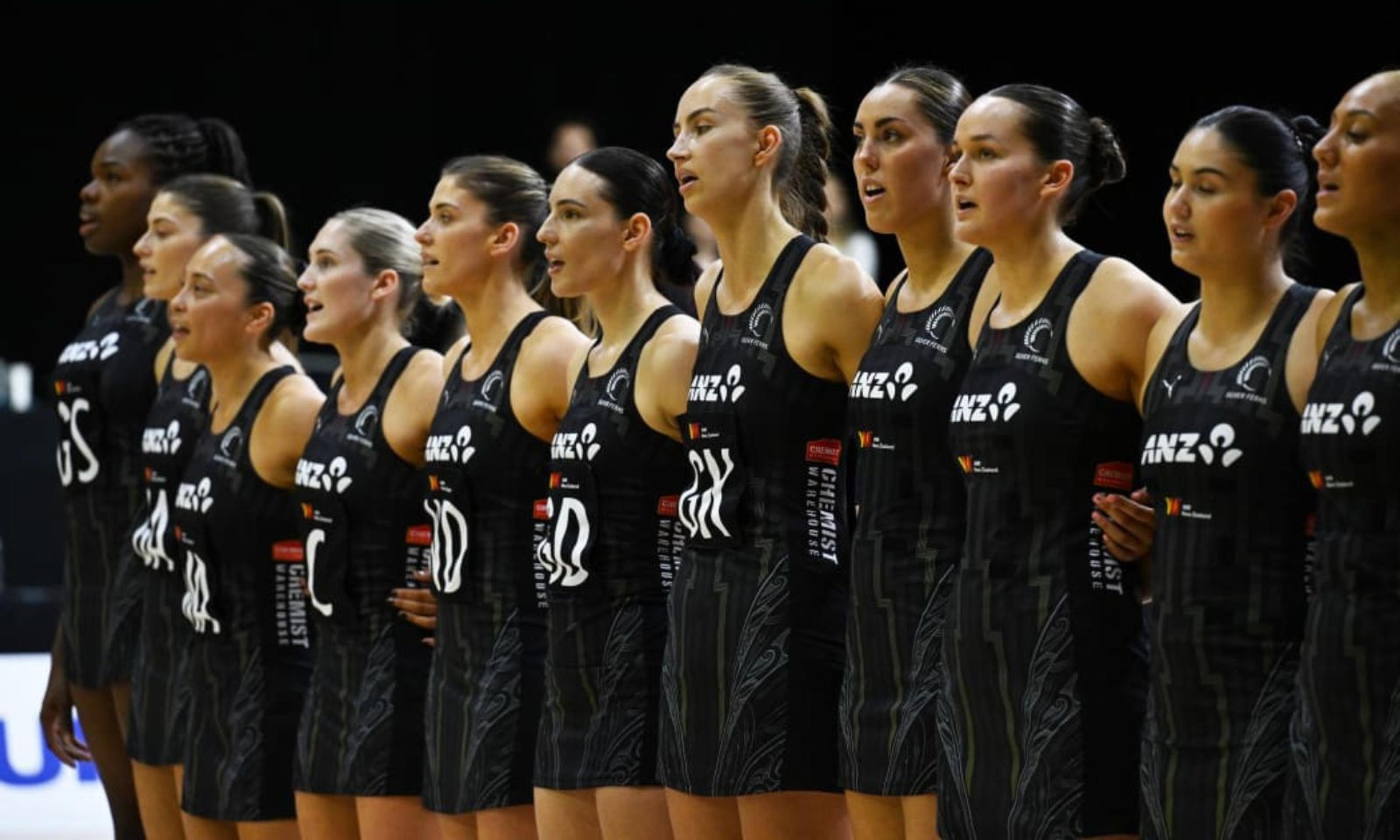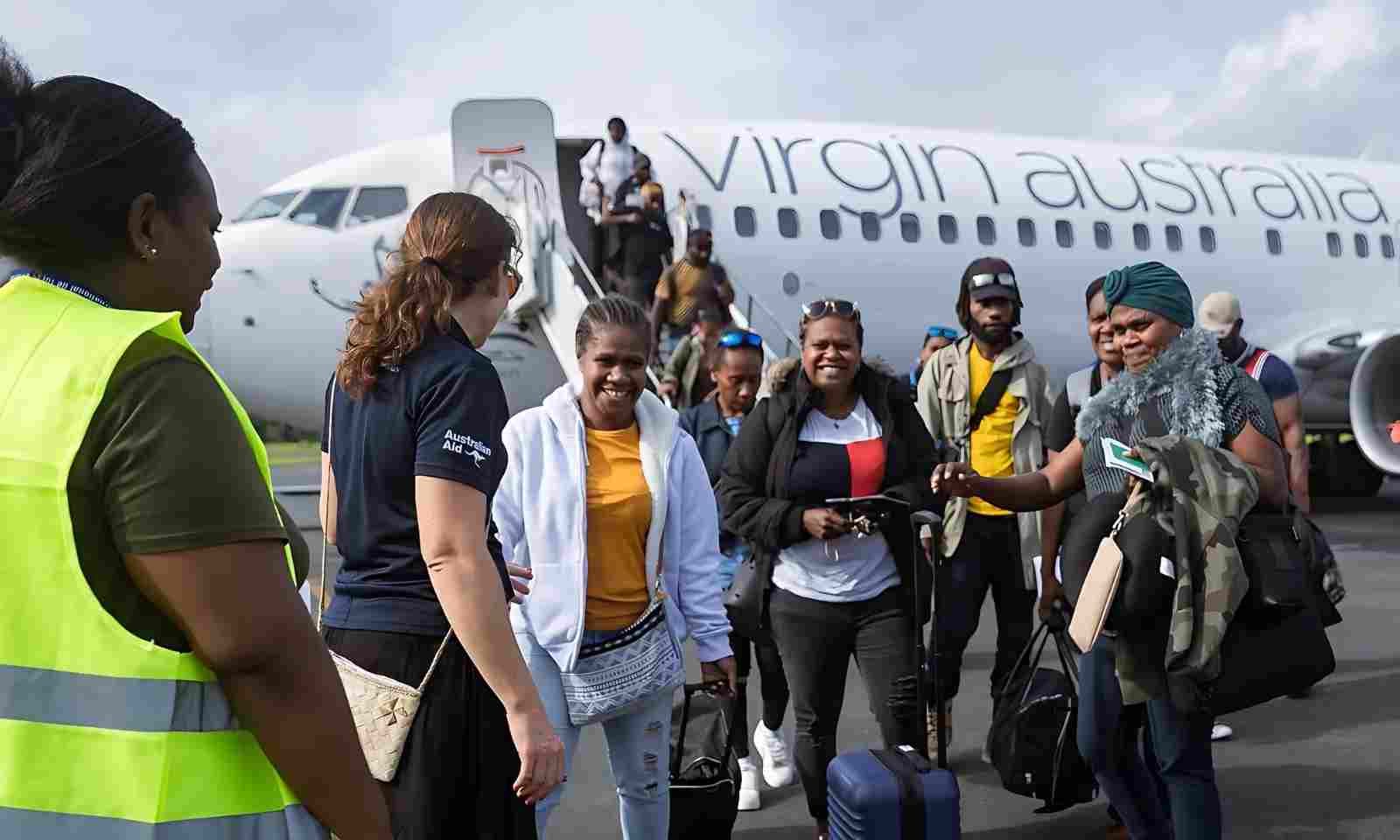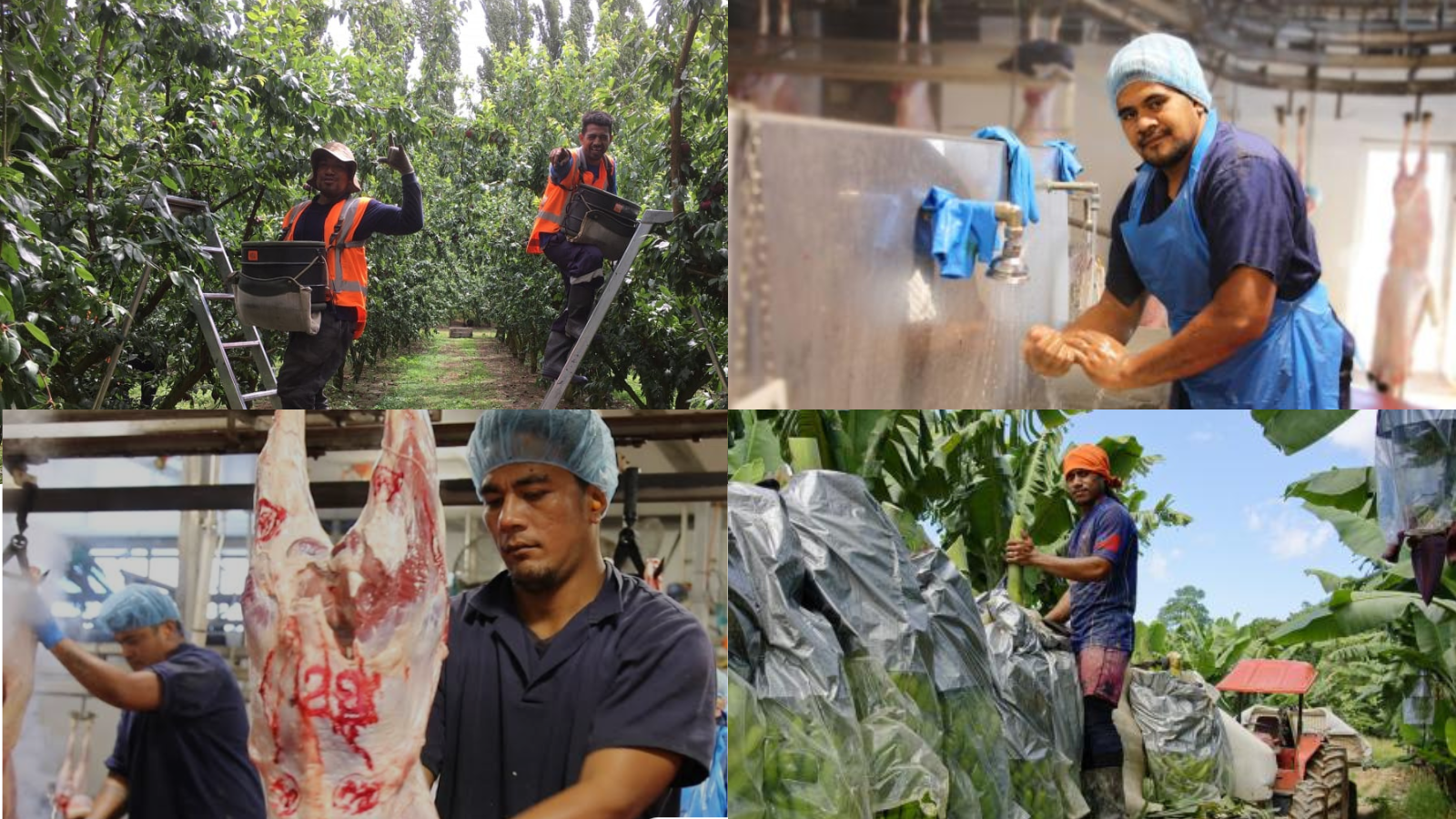

Pacific workers play a vital role in the region's agricultural industries.
Photo/RNZ Pacific/Koroi Hawkins
Pacific nations call for fair recruitment to make Labour Mobility work for everyone
Regional governments, worker groups, and employers are meeting in Honiara this week to make overseas labour schemes fairer and more sustainable.


US funding cuts threaten to 'dry up' future of Pacific scientists - expert


Fiji’s former Prime Minister and police chief charged with inciting mutiny

Inked across lands: How Pacific tattoo art is thriving in Germany

US funding cuts threaten to 'dry up' future of Pacific scientists - expert


Fiji’s former Prime Minister and police chief charged with inciting mutiny
Labour mobility experts, worker groups, and governments from across the Pacific are in Honiara this week for the Pacific Labour Mobility Annual Meeting 2025 (PLMAM 2025).
The meeting, from 3 to 6 November, is being hosted under the theme 'Sustainable Reintegration Begins with Fair and Effective Recruitment'.
The event is organised by the PACER Plus Implementation Unit (PPIU), which also works as the region’s Labour Mobility Secretariat.
Countries taking part include the PACER Plus partners New Zealand, Australia, Cook Islands, Kiribati, Niue, Sāmoa, Solomon Islands, Tonga, Tuvalu, and Vanuatu. Fiji, Papua New Guinea, and Timor-Leste are attending as observers.
Representatives from trade unions, private employers, academics and international bodies will also be there.
The four‑day gathering will create space for Pacific-sending countries (where workers begin) and receiving countries (where workers go) to talk openly about how people are recruited for jobs abroad and how they return home with real benefits for their families and communities.

Vanuatu seasonal workers arrive in Australia. Photo/Supplied
In a statement, Solomon Islands Minister for Foreign Affairs and External Trade, Peter Shanel Agovaka, says his country is proud to host the meeting.
“The Pacific’s labour mobility schemes have brought life‑changing opportunities to thousands of our people," he says. "But as the numbers grow, so does our shared responsibility to ensure recruitment is fair, ethical, and transparent."
Agovaka says hosting PLMAM 2025 is a chance for the whole region to make sure benefits flow not just to workers abroad, but to families, communities and countries back home.
Roy Lagolago, the head of PPIU and Labour Mobility Secretariat, has reminded everyone that reintegration of workers begins long before they leave their homes.
“Sustainable reintegration starts long before workers board a plane. It begins with how they are recruited, trained, and supported," he tells local media.
What’s new and urgent in the Pacific
A recent report by the International Labour Organization (ILO) highlighted how climate change is forcing more Pacific Islanders into migration paths, mostly with little protection.
The report states that fair recruitment needs to be embedded in labour mobility now, or risk exposing workers to exploitation.
“Climate mobility is a growing challenge for Pacific Island communities,” Martin Wandera, the ILO’s regional director, says in a statement. “By ensuring that recruitment is fair, transparent, and inclusive, we can help migrant workers access decent jobs both at home and abroad.”
At the recent Pacific Islands Forum meeting in Honiara, leaders agreed to endorse non‑binding regional labour mobility principles focused on fair, ethical, and transparent recruitment.
“We’ve seen a lot of risk associated with labour mobility, including discrimination, exploitation, forced labour and unfair recruitment practices,” Natalia Patternot, a trade adviser, told RNZ Pacific.

Pacific workers on farms in Australia - part of a scheme that provides income and skills but also challenges around fair recruitment and support. Photo/Supplied
Why this matters for Pacific workers and communities
Fair recruitment means workers won’t arrive abroad with big debt, unfair fees or weak protections, and that helps them send money home, build a future, not just survive.
If reintegration is strong (when workers come home), families and communities benefit: savings are spent locally, skills are used at home, and migration becomes a pathway rather than a risk.
For countries, ensuring ethical recruitment helps retain trust in labour schemes, strengthens regional cooperation, and positions the Pacific as a leader in mobility rather than just a source of labour.
For Pacific workers and their families, moving for work is more than a job change. It’s about opportunity, hope and community.
The PLMAM 2025 in Honiara brings a fresh focus to the idea that when recruitment is fair and returning home is well supported, labour mobility isn’t just about work abroad, it’s about a sustainable future for our people and places.